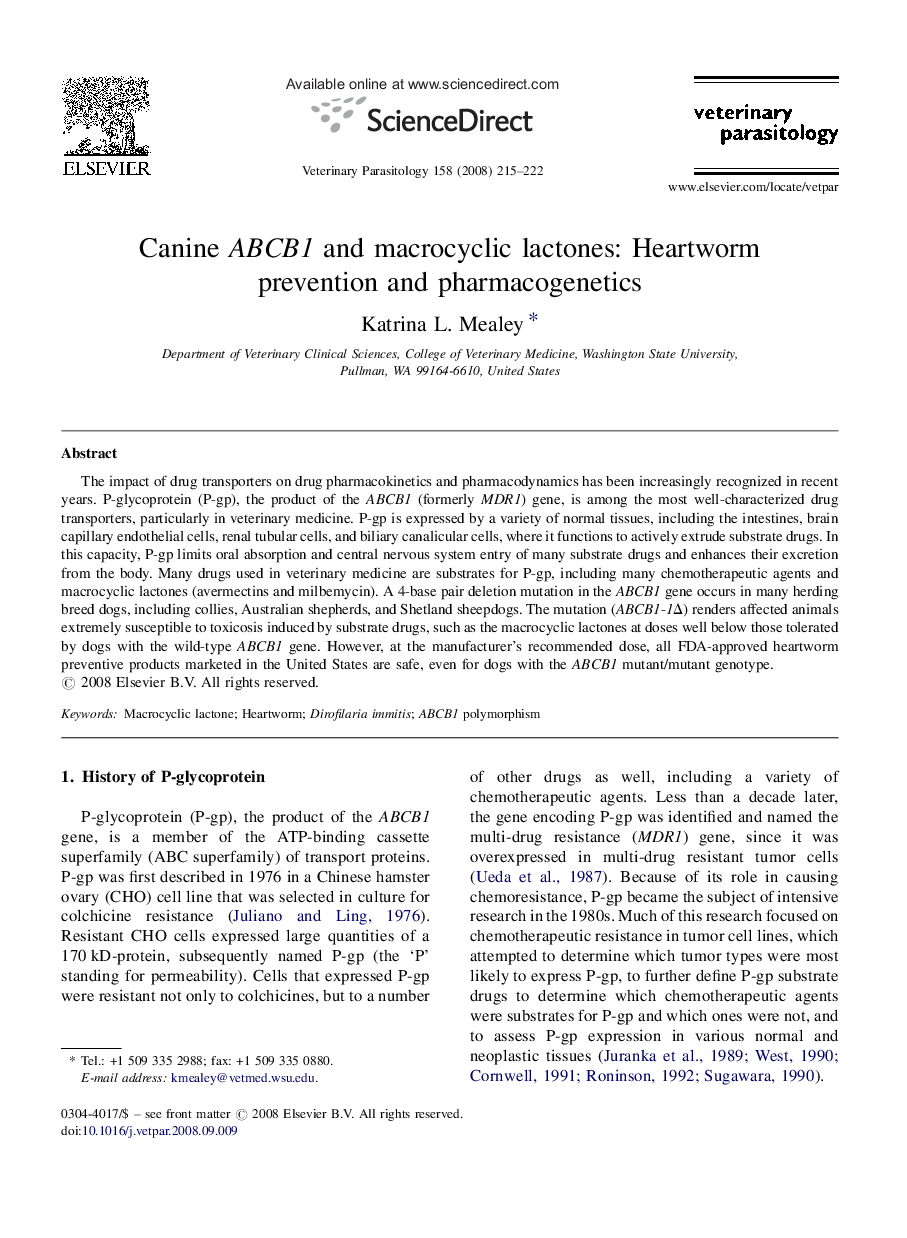| کد مقاله | کد نشریه | سال انتشار | مقاله انگلیسی | نسخه تمام متن |
|---|---|---|---|---|
| 2471392 | 1112534 | 2008 | 8 صفحه PDF | دانلود رایگان |

The impact of drug transporters on drug pharmacokinetics and pharmacodynamics has been increasingly recognized in recent years. P-glycoprotein (P-gp), the product of the ABCB1 (formerly MDR1) gene, is among the most well-characterized drug transporters, particularly in veterinary medicine. P-gp is expressed by a variety of normal tissues, including the intestines, brain capillary endothelial cells, renal tubular cells, and biliary canalicular cells, where it functions to actively extrude substrate drugs. In this capacity, P-gp limits oral absorption and central nervous system entry of many substrate drugs and enhances their excretion from the body. Many drugs used in veterinary medicine are substrates for P-gp, including many chemotherapeutic agents and macrocyclic lactones (avermectins and milbemycin). A 4-base pair deletion mutation in the ABCB1 gene occurs in many herding breed dogs, including collies, Australian shepherds, and Shetland sheepdogs. The mutation (ABCB1-1Δ) renders affected animals extremely susceptible to toxicosis induced by substrate drugs, such as the macrocyclic lactones at doses well below those tolerated by dogs with the wild-type ABCB1 gene. However, at the manufacturer’s recommended dose, all FDA-approved heartworm preventive products marketed in the United States are safe, even for dogs with the ABCB1 mutant/mutant genotype.
Journal: Veterinary Parasitology - Volume 158, Issue 3, 10 December 2008, Pages 215–222